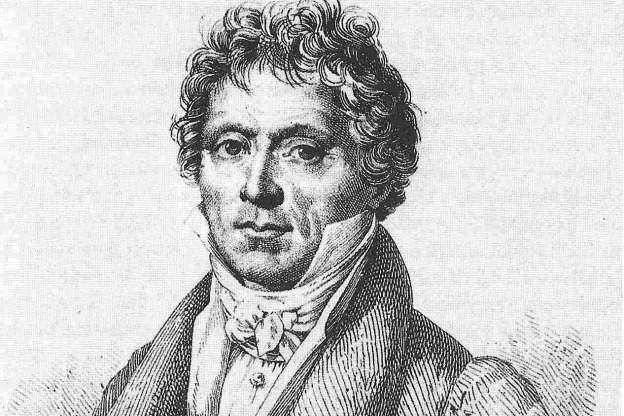
The Wind Quintet
Last time on the podcast, we explored the Classical string trio as the sometimes underappreciated sibling of the string quartet. But what about Classical chamber music for winds? The Classical wind quintet enjoyed a spectacular (if short-lived) heyday in the first few decades of the 19th century, and composer Antoine Reicha was in the thick of it.
Of Reicha’s quintets, his contemporary, John Sainsbury wrote, “No description, no imagination can do justice to these compositions. The effect produced by the extraordinary combinations of apparently opposite-toned instruments-added to Reicha’s vigorous style of writing and judicious arrangement-have rendered these quintets the admiration of the musical world."
Antoine Reicha
Antoine Reicha was born in Prague in 1770 but, after the death of his father was adopted by his Aunt and Uncle, and moved with them to Bonn when he was 15 years old. In Bonn, Antoine played violin and flute in the court chapel, alongside another young man, also born in 1770, Ludwig van Beethoven. After Bonn was invaded by the French in 1794, Antoine Reicha moved to Hamburg where he rubbed noses with Haydn. Then, he went to Paris, and after that, Vienna where he studied with Salieri. Reicha wrote a cantata while there, but when Napoleon censored his librettist, Reicha moved on to Leipzig in hopes of having it performed there. Foiled again by the French army’s blockade of Leipzig, Reicha returned to Vienna, only too soon to find Austria again bracing for war.
Reicha left for Paris in 1808, and things finally started going his way. In Paris, Reicha published both music and methods, and his reputation as a composition teacher gained momentum. He was soon appointed a professor at the Paris Conservatory, and is credited with teaching some of the most accomplished musicians of the day including Liszt, Gounod, Berlioz and César Franck. Chopin was supposed to study with Reicha, but apparently changed his mind at the last minute!
Le Cor Anglais and Gustave Vogt
Gustave Vogt was one of Reicha’s colleagues at the conservatory. He was an oboist and one of the French pioneers of the cor anglais. Vogt’s playing earned him the respect of many composers, among them Rossini. Reicha also wrote for Gustave Vogt-his sentimental adagio ‘pour le cor anglais’ is included on this recording.
Period Instruments
The instruments heard on this recording are period reproductions of the late 18th and early 19th century models similar to what would have been in use at the time of Reicha’s composing. Although wind instruments were on the verge of big changes-including new mechanizations of keys, and pistons and valves-that facilitated louder and more even timbres and greater ease of intonation, the instruments for which Reicha wrote, still required players to switch clarinets based on the key of the composition, still required woodwind players to use forked fingerings to play chromatic passagework, still required horn players to stop and switch crooks, and lip pitches up or down with great frequency. This was Reicha’s sound world when he conceived these quintets, and his compositions not only accommodate, but challenge the certain unwieldiness of these instruments. When performed on modern counterparts equipped with the new inventions, difficulties get glossed over, and Reicha’s music seems suddenly tame. And so, in order to hear the genius behind Reicha’s writing for the varied characters and idiosyncrasies of the instruments he knew, the use of period instruments becomes essential in these pieces.
Thalia Ensemble
Founded in Amsterdam in 2011, The Thalia Ensemble is relatively new on the scene. In 2013, the group was selected as the winner of the York Early Music Festival Young Artists Competition, and this is their debut recording.









